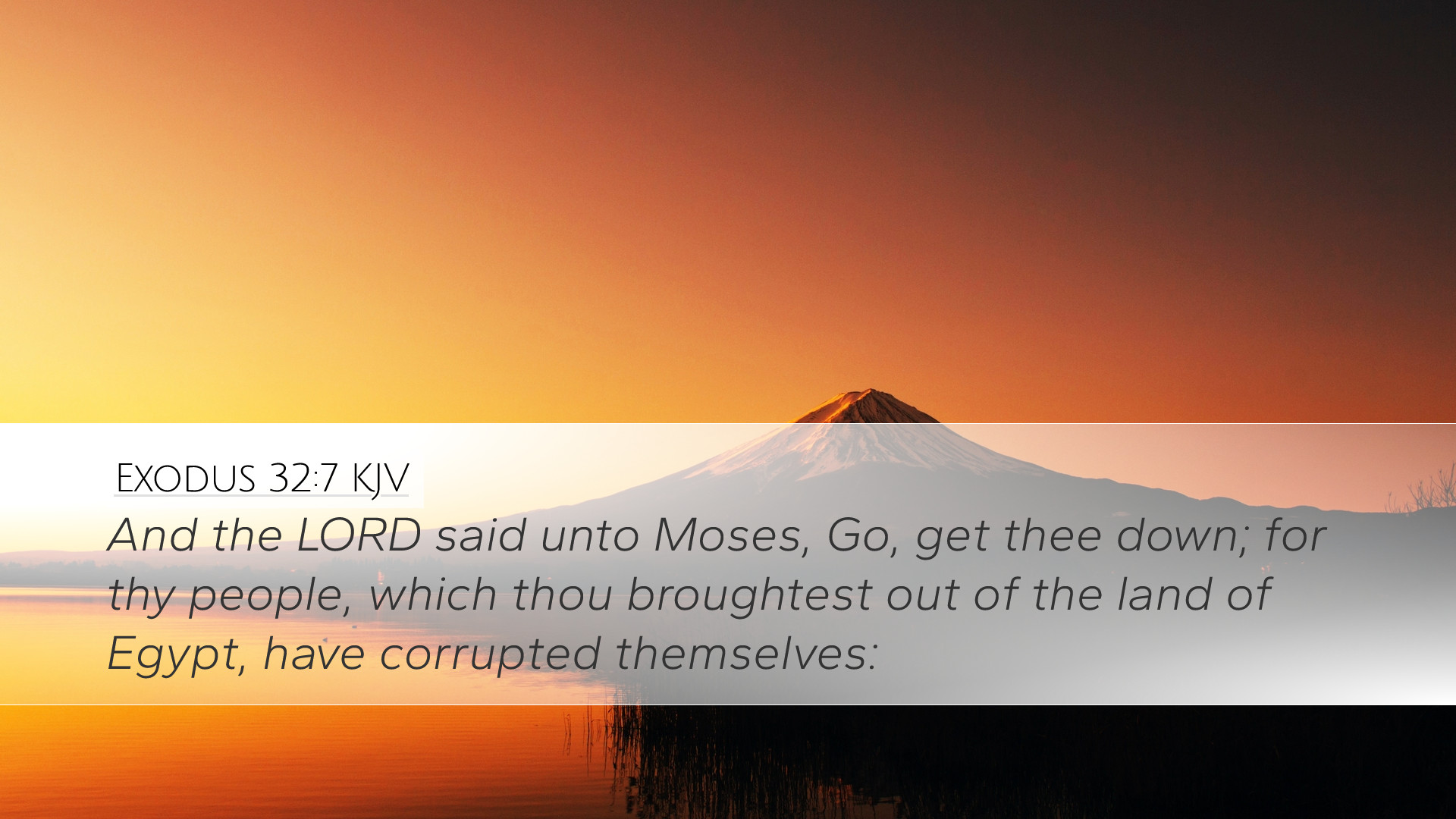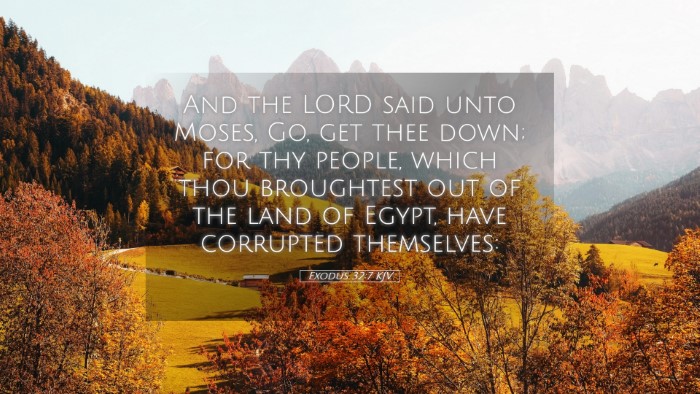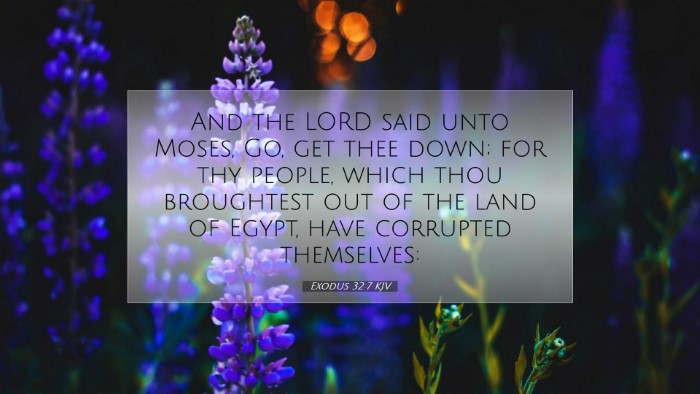Bible Commentary on Exodus 32:7
Exodus 32:7: "And the Lord said unto Moses, Go, get thee down; for thy people, which thou broughtest out of the land of Egypt, have corrupted themselves."
Introduction
The verse at hand marks a pivotal moment in Israel's history, reflecting the serious consequences of idolatry and the nature of sin in the life of God’s covenant people. It is crucial for understanding the dynamics of leadership, divine judgment, and the character of God as depicted in the Old Testament.
Contextual Background
Exodus 32 occurs after God establishes His covenant with Israel at Mount Sinai, where He reveals His laws and directives. This event is significant not only because of the covenant but also due to the immediate rebellion of the Israelites, who, impatient and fearful, turn to the worship of a golden calf.
The Importance of Leadership
Moses, as the chosen leader, is deeply intertwined with the fortunes of his people. This verse highlights the profound responsibility that leaders carry; their actions and the relationship they hold with God significantly impact those they guide.
Theological Insights
This passage presents several key theological themes worth noting:
- The Nature of God: Here, the phrase "the Lord said" indicates the immediacy and authority of God's voice. It emphasizes God's sovereignty over His people, even amid their failure.
- Human Rebellion: The expression "thy people, which thou broughtest out of the land of Egypt" signals both a schism in the relationship between God and Israel and highlights the depth of their apostasy.
- Covenantal Relationships: God’s declaration encapsulates the tension between divine fidelity and human infidelity, focusing on how His people often stray despite having been delivered by His mighty hand.
Commentary from Matthew Henry
Matthew Henry highlights the gravity of the situation in verse 7 by stressing that "corrupted themselves" reflects an active choice by the Israelites, not merely a passive decline. He remarks on the disappointment God expresses, noting that the act of idolatry exemplifies a failure to honor the covenant relationship established at Sinai.
Insights from Albert Barnes
Albert Barnes emphasizes the disciplinary aspect of God's command to Moses. He interprets this moment as an opportunity for judgment and purification within Israel. His commentary points out that the term "corrupted themselves" illustrates the departure of Israel from their intended holiness, revealing their inherent propensity towards sinfulness.
Adam Clarke’s Perspective
Adam Clarke delves into the implications of God’s message to Moses, focusing on divine justice as opposed to mere anger. He argues that God's dialogue with Moses underscores the seriousness with which God views idolatry and rebellion. Clarke suggests that this moment serves as a warning to subsequent generations about the dangers of forsaking God for false idols.
Applications for Today’s Church
The lessons derived from Exodus 32:7 are profound and applicable to our contemporary Christian context:
- Idolatry in Modern Times: While the form may differ, the essence of idolatry persists. Believers must be vigilant against anything that takes precedence over God in their lives.
- The Role of Leadership: Pastors and church leaders are reminded of their responsibility to guide their congregations in truth, being aware of the consequences of complacency and disobedience.
- Divine Discipline: Understanding that God’s responses to our actions, even when they are harsh, is grounded in love and a desire for restoration encourages humility among believers.
Conclusion
Exodus 32:7 serves as a profound reminder of the gravity of sin and the importance of fidelity in our relationship with God. The collective insights from public domain commentaries enrich our understanding of this crucial text, providing pastors, students, and theologians with a multifaceted perspective. As we reflect on this passage, may we be inspired to renew our covenant commitments to God and reconcile any areas of idolatry that impede our walk with Him.


